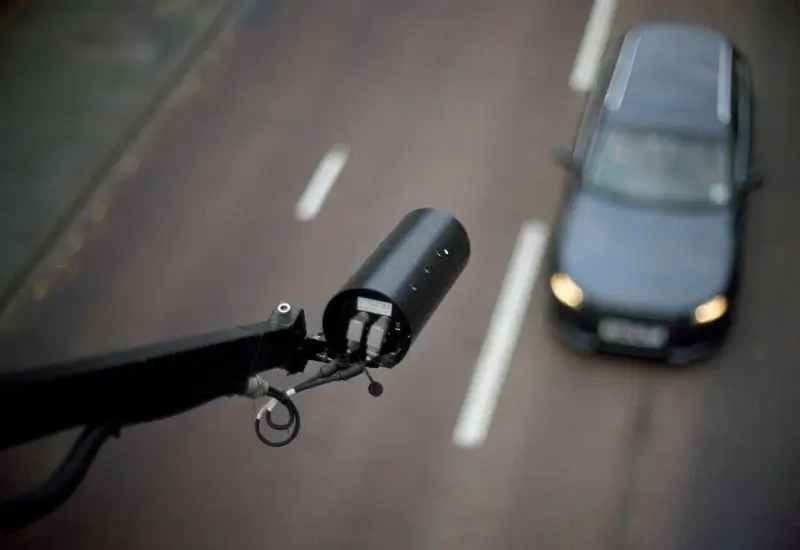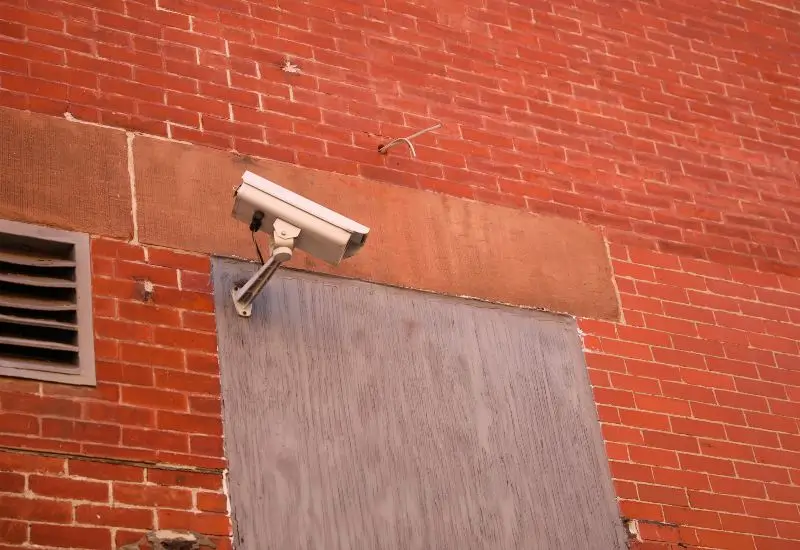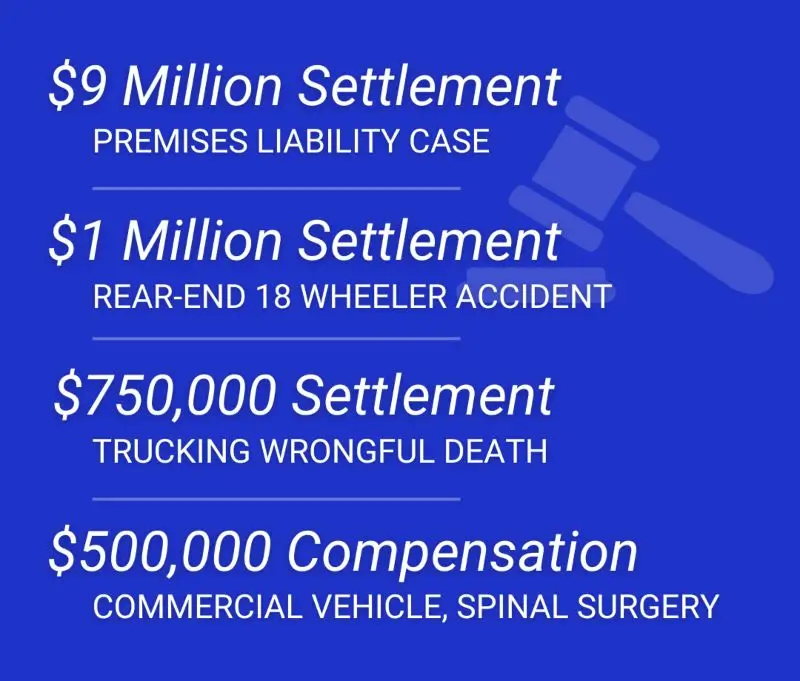Car accidents can occur anywhere at any time. Fortunately for victims, traffic and surveillance cameras are often recording. If you’ve been involved in an accident, it’s in your best interest to look for relevant surveillance footage. Nava Law Group, P.C. is here to help. Our traffic accident lawyers are experienced in collecting video footage for accidents involving all kinds of transportation methods, from motor vehicles to bicycles. We’ll work to ensure your rights are protected, especially if the other party is responsible for your injuries. Take a look at our comprehensive guide to obtaining traffic camera recordings after a car accident.

Why Surveillance Footage Matters
First, let’s take a step back. Why is video surveillance important in car accident cases? First and foremost, surveillance footage offers a clear and objective view of the events leading up to, during, and after an accident. Unlike subjective eyewitness accounts, camera footage provides concrete visual evidence. This can be crucial in determining fault, negotiating with insurance companies, and streamlining court proceedings.
For instance, video will capture critical details such as traffic signal changes, vehicle speeds, and the behavior of drivers and pedestrians. Information like this can corroborate your version of events and counter any false claims made by the other party. In Texas, where traffic laws are strict and insurance companies often scrutinize claims, having clear evidence can make a significant difference.
Additionally, surveillance footage can help speed up the resolution process. Insurance adjusters and legal representatives prefer clear, indisputable evidence, which may lead to quicker settlements and less hassle for you.
A Step-by-Step Guide to Securing Video Footage
Surveillance footage is a crucial part of many car accident cases. However, obtaining it is often easier said than done. Follow these steps to secure a video record of the incident:
1. Identify Potential Camera Sources
Before you can obtain surveillance footage, you need to know where to look. Several types of cameras might have captured your accident, and identifying these sources is the first step. Consider these sources:
Traffic Cameras
Traffic cameras are often installed at busy intersections and along major highways. While they are not typically used for recording accidents, they can sometimes capture relevant footage. To find out if a traffic camera captured your accident, visit the TxDOT website or contact their office directly. They may provide access to video recordings if they’re relevant to your incident.
Business Surveillance Cameras
Businesses such as gas stations, convenience stores, and restaurants often have surveillance cameras installed on their premises. These cameras can inadvertently capture footage of nearby streets and intersections. If your accident occurred near a business, visit the establishment and ask to speak with the manager. Explain your situation clearly and politely request access to any footage that might have captured the accident.
Residential Security Cameras
Homeowners with security systems may also have cameras pointed at nearby roads. In neighborhoods with high foot traffic or busy streets, these cameras can capture useful footage. If you believe a nearby residence might have recorded your accident, consider reaching out to the homeowners. It’s best to make contact through an auto accident attorney, and we do not recommend approaching strangers out of the blue.
2. File an Open Records Request or Contact the Camera Owner
Once you know who has control of the surveillance footage, you can take steps to obtain a copy. When filing your request, be sure to give all the necessary information. This includes the date and time of the accident, the specific location of the camera, and any other identifying information that might be helpful. Here are our tips for making contact depending on who owns the camera in question:
Government Agencies
If you’d like to obtain footage from a traffic camera, you’ll need to file a Public Information Act request. This request allows individuals to access government records, including surveillance footage, under certain conditions.
Visit the website of the relevant government agency managing the cameras. Follow their guidelines for submitting a PIA request, providing as much detail as possible about the date, time, and location of the accident. Be prepared for potential delays, as government agencies receive numerous requests and may take time to process yours.
Businesses
When requesting footage from businesses, a written request may be more effective than a verbal one. Draft a formal letter outlining your request, including the specifics of the accident and how the footage could be beneficial. Address the letter to the manager or owner of the business.
In your letter, emphasize the importance of the footage for legal and insurance purposes. Mention any deadlines you might have, such as upcoming court dates or insurance claim deadlines. Don’t forget to provide your contact information, too.
Homeowners
For residential security cameras, a personal approach is best. Write a polite letter or talk to your lawyer about reaching out on your behalf. Clearly explain your situation and how the footage could assist in resolving your case. Homeowners may have privacy concerns, so reassure them that the footage will be used solely for legal and insurance purposes. Our legal professionals can help you make contact with private individuals as needed.

3. Understand Privacy and Legal Considerations
Privacy is important to consider when requesting surveillance footage. In Texas, privacy laws protect an individual’s right to their recorded footage, and unauthorized use of footage can lead to legal issues. Always obtain consent from the camera owner before using or disseminating any footage. This is particularly important when dealing with businesses and homeowners. We also recommend following these guidelines to respect privacy and legal concerns:
- Be Respectful and Transparent—Approach your requests with respect and transparency. Clearly communicate your intentions and the purpose of the footage. Most people are willing to help if they understand the importance of your request and feel their privacy is respected.
- Seek Legal Support—If you encounter resistance or legal obstacles, consider working with an auto accident attorney. The team at Nava Law Group, P.C. specializes in car accidents and personal injury, and we can help you navigate the complexities of obtaining surveillance footage. We can also assist in negotiating with businesses and government agencies on your behalf.
4. Provide Information and Follow-Up as Necessary
Keep in mind that you may need to follow up with the government agencies, businesses, or individuals who own the cameras in question. While these things take time, don’t hesitate to reach out again if you haven’t heard back about your request. Always do so respectfully and understand that everyone has other obligations as well.
5. Maximize the Use of Your Newfound Footage
Once you’ve successfully obtained surveillance footage, it’s crucial to use it effectively. Here are some tips to maximize the impact of your evidence:
- Analyze the Footage With a Traffic Accident Lawyer—Carefully review the footage to identify key details that support your case. Look for timestamps, vehicle movements, and any other relevant information. Taking notes and creating a timeline can help you present the footage more effectively.
- Share With Relevant Parties—Share the footage with your insurance company and other relevant parties. The footage should be clear and easily accessible, and be sure to provide context to help others understand its significance.
- Store It Securely—Store the footage securely to prevent loss or damage. We recommend making multiple copies and keeping them in different locations. Digital storage solutions, such as cloud services, can provide additional security and accessibility.
6. Choose Experienced Legal Representation
As you build your case, you’re likely to encounter lots of challenges. If you have an experienced attorney on your side, you can avoid some of the common pitfalls many car accident victims deal with. The team at Nava Law Group, P.C. has decades of expertise in personal injury, and we’ve worked on countless transportation cases. In addition to traditional car accidents, our team can also help with the following:
- Pedestrian Accidents—Victims of pedestrian accidents often deal with mounting medical bills, lost wages, and emotional distress. Our team can ensure your rights as a pedestrian are protected.
- Bicycle Accidents— Cyclists face unique risks on the road, and when accidents occur, the consequences can be severe. With potential issues like severe injuries, insurance disputes, and liability questions, having skilled legal representation is crucial.
- Boat Accidents—Boat accidents don’t always work like car collisions. These incidents often involve maritime laws and severe consequences for those affected. Nava Law Group, P.C. works with clients to navigate intricate liability issues and significant personal injury claims.
- Truck Accidents—Truck accidents often result in devastating consequences due to their sheer size and force. Navigating the aftermath requires a deep understanding of the complexities involved, from federal regulations to determining liability among multiple parties.
- Bus Accidents—Bus accidents present unique and complex challenges. Thankfully, our knowledgeable legal team can help you better understand your rights and work toward the best possible outcome.
- Motorcycle Accidents—Have you or a loved one been involved in a motorcycle accident? Our attorneys specialize in this type of motor vehicle collision as well. We’ll help you fight for adequate compensation after the accident.
FAQs About Obtaining Security Footage
Getting useful security footage isn’t always straightforward. Thankfully, Nava Law Group, P.C. is here to answer your questions. Take a look at our FAQs or reach out for more specific advice.
How long is surveillance footage stored?
The retention period for surveillance footage varies depending on the camera owner. Businesses often keep footage for 30 to 90 days, while some residential security systems retain video for shorter periods. It’s essential to act quickly so you don’t miss out on any relevant video recordings.
Can I request footage from a location where I wasn’t involved in an accident?
Footage requests are typically only granted if you are directly involved in an incident and the footage pertains to your case. If you believe footage from another location is relevant, you may need to provide additional context or gather legal support to justify your request.
Are businesses and homeowners legally obliged to provide surveillance footage?
In most cases, businesses and homeowners are not legally required to provide footage unless compelled by a court order. Approaching them respectfully and explaining the importance of the footage for legal or insurance purposes can increase your chances of obtaining it.
What should I do if a business or homeowner refuses my request for footage?
If a request is refused, remain respectful and consider seeking legal advice. An attorney can help determine if there are grounds for a legal claim or if additional steps, like a subpoena, are necessary to obtain the footage.
Can the footage be used in court?
Yes, surveillance footage can be used as evidence in court. However, the footage must be obtained legally and with the owner’s consent to avoid any privacy violations.
Get Help From Houston’s Nava Law Group, P.C.
Before you pursue the surveillance camera footage of your car accident, make sure to take all the proper precautions to protect your rights and promote successful outcomes. Understand all of the applicable privacy laws, and get to know best practices for obtaining footage. Getting the relevant recordings can be a lengthy process, so be sure to start your search right away. Though the process seems complicated at first, having video footage on your side may be instrumental in winning your case. If you’re ready to find out if you have a viable claim, contact Nava Law Group, P.C. today. With decades of experience under our belt, we’re ready to fight for your rights through every step of your claim. Our team can help you secure video evidence, find credible eyewitnesses, and ensure the case is filed within the proper timeline.








